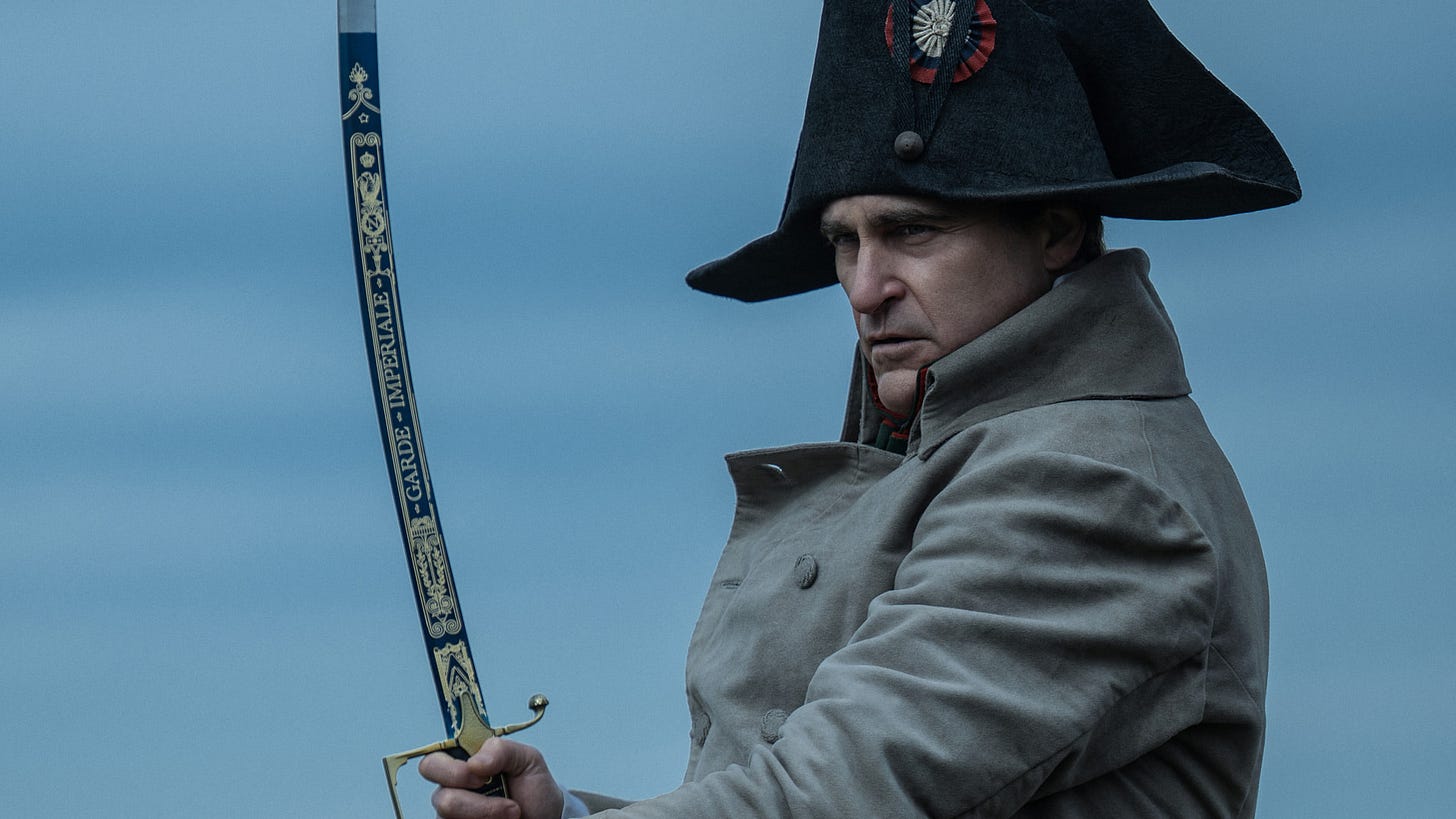Napoleon | Dueling Reviews
Graham and Tyler Battle It Out Across Europe
The world’s number-one movie this past weekend is also one of the year's most controversial. Dividing audiences and critics on both sides of the Atlantic, Ridley Scott’s Napoleon has also divided your friendly neighborhood movie nerds here at Cinemantics.
Graham and Tyler duke it out across Europe — from Austertlitz to Moscow to Waterloo — as they break down their thoughts on the hotly debated movie.
Graham’s Review
The Big Picture — A Spectacle with Great Acting and Brilliant Battles
I come not to bury Napoleon, but instead to offer very measured praise. (I know that’s a butchering of a Shakespeare quote but if I’m going to praise Napoleon, I better get used to butchering history.)
It makes complete sense that there’s a four-hour cut of Napoleon in the works, partially because this is Ridley Scott we’re talking about, and also because the theatrical version of Napoleon feels like a series of ten-minute sequences strung together to create something resembling a narrative arc. That may be the case, but that smorgasbord is glorious.
Scott has not lost his fastball when it comes to shooting epic battle sequences.
The battle of Austerlitz, for example, gives the viewer shot after shot of gorgeously framed carnage while never losing the tension of battle or overwhelming the viewer to the point of numbness.
The film is also surprisingly funny. Phoenix’s portrayal of Napoleon as an overgrown and insecure man-child is one of the more memorable choices in the pantheon of great actors playing historical figures, and his “boats” and “lamb chops” line reads may be the best of the year.
As Tyler gets into below, the film isn’t exactly a coherent telling of Napoleon’s life, but it is snappily paced and equal parts entertaining and amusing. But it undoubtedly does feel like a CliffNotes version of a longer, better film.
For sheer spectacle, great acting, and brilliantly constructed and staged battle scenes, though, you’d be hard-pressed to do much better than Napoleon.
Tyler’s Review
The Big Picture — Sorry Folks, But Sir Ridley Should Retire
This movie is dedicated to Ridley Scott’s dog, Lulu. Frankly, if I were Lulu, I’d be embarrassed. Suffice it to say, I’ve come to bury Napoleon.
It’s the cinematic equivalent of Frankenstein’s Monster: a hodgepodge of vignettes and storylines with wildly divergent styles, tones, and ideas. Collectively, they resemble something like a story but are stitched together so poorly that you can see the seams clear as day. Napoleon can’t decide if it wants to be a psychosexual drama or a classic war epic. Sadly, it does neither particularly well.
You might be asking: Tyler, did you like anything about the movie? Well, yes. As my dear friend noted above, Sir Ridley Scott is a great stager of battle sequences.
The Battle of Austerlitz, roughly halfway through the movie, is worth the price of admission alone. It was beautiful, inventive, and perfectly choreographed and executed. Phoenix, too, is surprisingly effective and often funny as the infamous manchild in chief.
If Sir Ridley had taken as much time to think deeply about the relationship between Napoleon and Josephine as he did the great battles, this movie might have been good. Sadly, it’s pretty bad—and lazy, too. Entire plotlines and characters are introduced, established, and abandoned with little to no payoff.
But this is the sad reality of Sir Ridley’s career: worlds attract, not ideas. If he stumbles upon a thoughtful film, like Blade Runner, it’s almost by accident. If he tries to think too deeply, he misses the point of the enterprise entirely (cough, cough, thinking that Deckard is a Replicant).
Napoleon proves that in spades.
Reader, what did you think of Napoleon? Let us know in the comments below!






